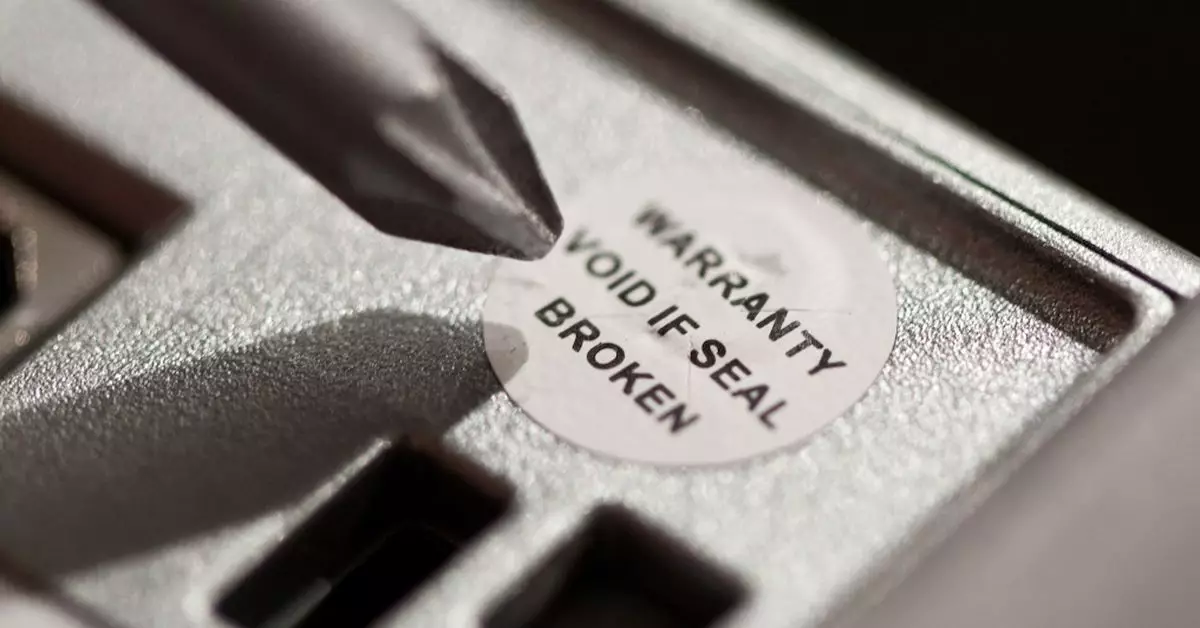The Federal Trade Commission (FTC) has recently sent letters to ASRock, Gigabyte, and Zotac regarding the use of “warranty void if removed” stickers on their products. These stickers, which cover screw holes on gadgets, are being flagged as illegal by the FTC. The letters sent by the FTC to these manufacturers express concerns that go beyond just the surface level of the stickers. The FTC is urging these companies to revise their warranty policies and review their customer support practices to ensure that consumers’ warranties are not illegally threatened.
The particular law being invoked by the FTC in this case is the federal Magnuson-Moss Warranty Act. This law is designed to prevent companies from imposing unfair warranty conditions on consumers. The act prohibits warrantors from tying warranties to the use of specific products or services, unless the warranty clearly states that such products or services will be provided for free to the consumer. The FTC is closely monitoring the warranty policies of ASRock, Gigabyte, and Zotac and has warned them of possible consequences if they do not comply with the law.
This is not the first time that the FTC has targeted companies for illegal warranty practices. In 2018, the FTC issued warnings to companies like Nintendo, Sony, Microsoft, Asus, HTC, and Hyundai for similar violations. Some of these companies, including Nintendo, Sony, and Hyundai, made changes to their policies shortly after being contacted by the FTC. It is clear that the FTC is committed to enforcing the Magnuson-Moss Warranty Act and ensuring that consumers are not unfairly deprived of warranty coverage.
The use of “warranty void if removed” stickers can have serious implications for consumers. These stickers can discourage consumers from attempting to repair or modify their own devices, even if they have the skills and knowledge to do so. By threatening to void warranties based on the removal of these stickers, companies are limiting consumers’ ability to exercise their right to repair. This not only harms consumers but also stifles competition and innovation in the tech industry.
It is essential for companies to be transparent about their warranty policies and not use deceptive tactics to restrict consumers’ rights. By complying with the Magnuson-Moss Warranty Act and refraining from using illegal warranty stickers, companies can build trust with consumers and demonstrate their commitment to fair and ethical business practices. Consumers should be aware of their rights when it comes to warranties and hold companies accountable for any violations.
The FTC’s crackdown on illegal warranty stickers is a positive step towards protecting consumer rights and promoting fair competition in the tech industry. Companies must adhere to the law and ensure that their warranty policies are in compliance with regulations. Consumers should stay informed about their rights and speak out against any practices that undermine their ability to repair and modify their own devices. By working together, consumers and regulatory agencies can uphold the principles of transparency and accountability in the marketplace.


Leave a Reply